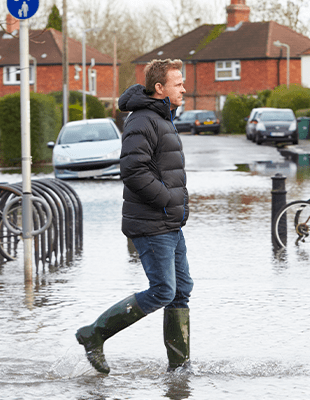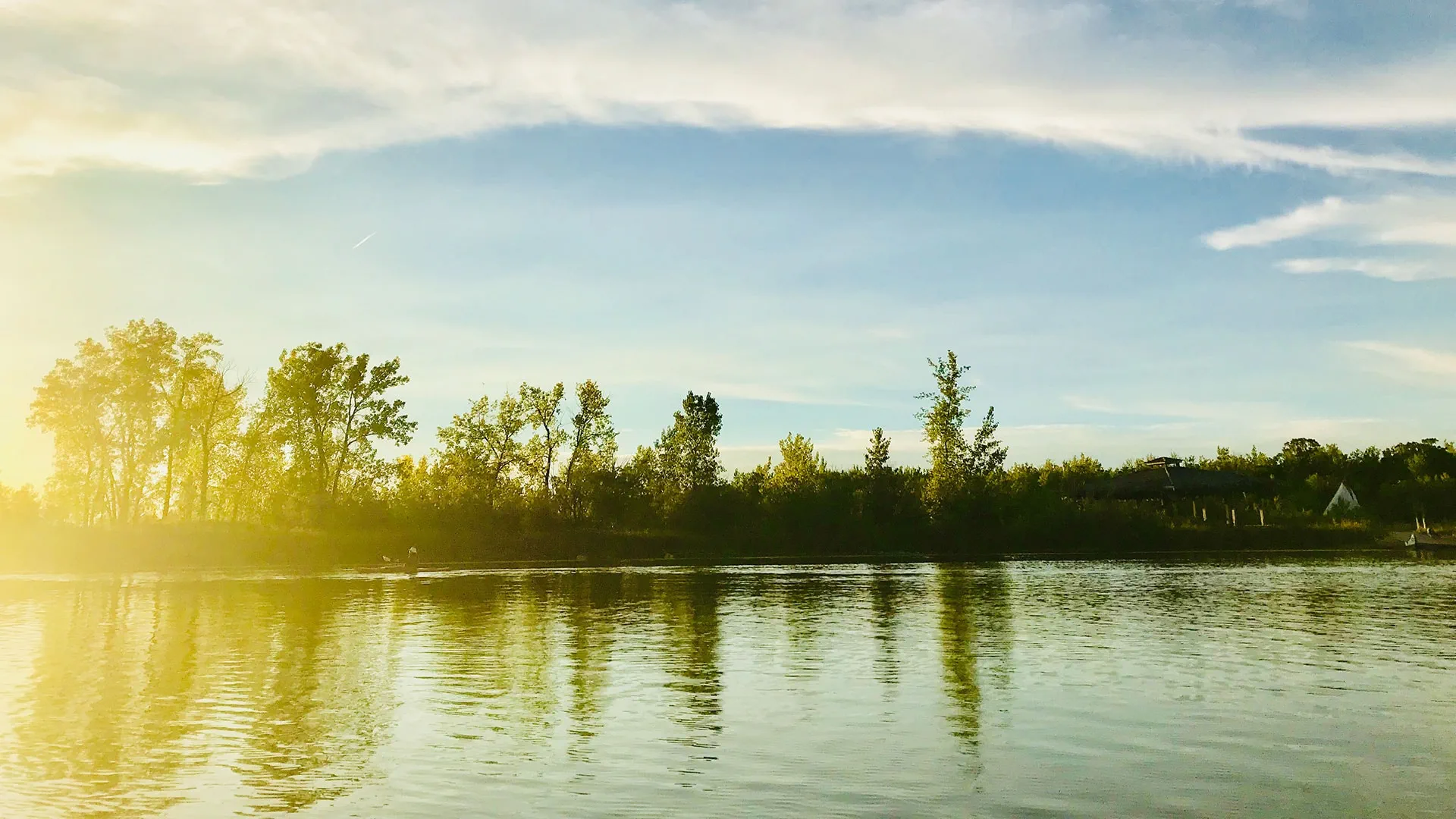Table of Contents
The challenge
As climate change increases the risk of heavy rain, storm surges, and heatwaves, people and infrastructure in New Jersey are increasingly vulnerable.
1,000,000
New Jersey comprises many densely populated urban and suburban communities with aging infrastructure and a high proportion of impervious surfaces; meaning that heavy rains can often overwhelm sewer systems and cause flooding. This was the case following Hurricane Ida in 2021, when more than 8 inches of rain fell at Newark Liberty International Airport and more than 5 inches fell on South Amboy in Middlesex County, causing devastating flooding to homes, businesses, and critical assets. Low-lying coastal communities, which in many cases were formerly tidal wetlands that were filled-in for development, are also vulnerable to coastal storm surge, which was experienced during Hurricane Sandy.
New Jersey also faces a variety of other climate-related challenges, including extreme heat, poor air quality, ocean acidification, and groundwater rise and contamination. In many instances, climate hazards disproportionately impact a community’s most vulnerable, who are more likely to live in flood-prone areas, depend on jobs that require commuting to work, may speak other languages or have other physical needs, and have limited access to recovery resources.
In response, communities across the State have been working to develop plans and implement projects to manage stormwater, protect from coastal flooding, and improve sustainability. However, the urgency of the challenges warranted an innovative, collaborative approach to develop climate resilience solutions that would leverage shared goals and protect those most impacted.
The solution
To help mitigate risk, we are working with the New Jersey Department of Environmental Protection on its community driven Resilient NJ initiative.
30+
To increase resilience, the New Jersey Department of Environmental Protection (NJDEP) developed the Resilient NJ (RNJ) initiative. RNJ received initial funding through the U.S. Department of Housing and Urban Development National Disaster Resilience Competition, and its goal is to build on existing efforts and capabilities in New Jersey to create and implement creative regional planning solutions that address current and future flood and climate-related hazards, while promoting the health and well-being of coastal and riverine communities.
Four regions across New Jersey were selected as pilot planning regions. These consisted of coalitions of community-based organizations and municipal and county governments: Raritan River and Bay Communities, Northeastern NJ, Long Beach Island, and the Atlantic County Coastal Region.
Arcadis is working with NJDEP and the regional teams to manage the RNJ efforts to develop and implement resilience action plans in the Raritan River and Bay Communities and Northeastern New Jersey regions. To ensure the solutions that RNJ presents truly reflect the needs of all community members, the program is working to engage the most vulnerable and at-risk people. Community feedback has been integrated throughout the process, including by conducting extensive outreach activities, hosting community meetings, translating outreach materials, and partnering with community-based organizations, schools, and clubs across the region to understand experiences and priorities.
Combined with quantitative and qualitative impact assessments incorporating climate change considerations, Arcadis worked with the regional teams to develop a series of recommendations to address the various intertwined challenges facing these communities. The recommendations span multiple types of actions that can be led and implemented at different scales, resulting in a holistic approach to climate adaptation. These actions range from drainage improvements and green infrastructure implementation to policy improvements, as well as outreach, education, and capacity building practices that could help address the underlying causes of vulnerability and improve post-disaster adaptability.
The impact
Resilience Action Plans developed via collaboration and using data give communities a roadmap for increasing resilience, involving those most at risk.
4,500+
The Resilience Action Plans developed through Resilient NJ are resources and tools for leaders and community members in their respective regions, helping them to articulate what is needed to address challenges that are already here today and are expected to become more significant overtime. The roadmaps developed through the process outline next steps to conduct additional engagement, advance feasibility studies, and implement recommendations, and in many instances, implementation was already begun through the process. The regional coalitions that collaborated for the project can serve as platforms for continued sharing of best practices, advocacy for funding and action, and pooling of knowledge and resources for implementation.
Behind the solution
Not done reading?
This also might be interesting for you
- Related Projects
- Related Insights
- Related Blogs








